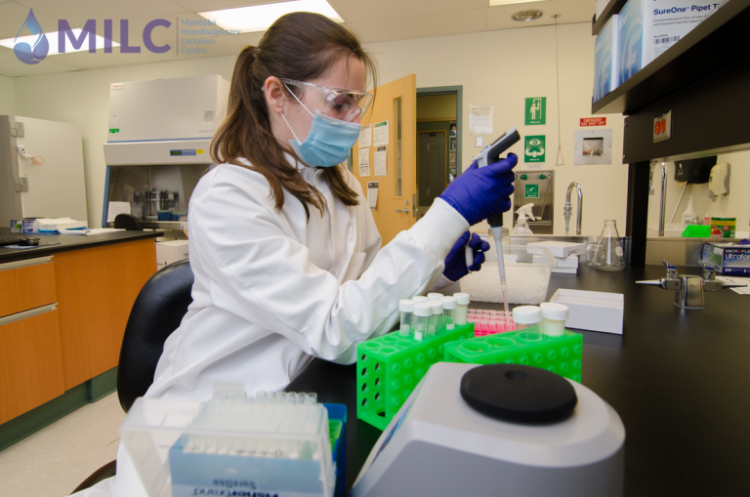A major study co-led by UM, NYU and involving researchers from universities across North America has been published in Cell.
The study shows breastfeeding beyond three months supports the gradual maturation of the microbiome in the infant's digestive system and nasal cavity. Meanwhile, stopping breastfeeding earlier than three months disrupts the paced development of the microbiome and was linked to a higher risk of preschool asthma.

Dr. Megan Azad
The study is co-led by Dr. Meghan Azad, Canada Research Chair in Early Nutrition and the Developmental Origins of Disease and director of the Manitoba Interdisciplinary Lactation Centre.
"This research highlights the profound impact of breastfeeding on the infant microbiome and its essential role in supporting respiratory health," said Azad. "Understanding these mechanisms is crucial for developing strategies to optimize infant health and prevent respiratory conditions from an early age," added Azad, who is also a research scientist at the Children's Hospital Research Institute of Manitoba.
The study used data from mothers and children in the CHILD Cohort Study, a long-term research project that has been following the same 3,500 Canadian children at different stages of life from the womb well into adolescence.
"Healthy microbiome development is not only about having the right microbes' - they need to arrive in the right order, at the right time," explained Kelsey Fehr, the lead analyst on the study. "Timing is everything, and breastmilk is the pacemaker."

Kelsey Fehr - Co-lead study author
Breastfeeding duration remained a powerful determinant of a child's microbial makeup over time. Co-lead and computational biologist Liat Shenhav, at NYU Grossman School of Medicine's Institute for Systems Genetics and the School's Department of Microbiology, used these microbial dynamics and data on milk components to train a machine-learning model that accurately predicted asthma years in advance. A statistical model was created to learn causal relationships, which showed that the primary way breastfeeding reduces asthma risk is through shaping the infant's microbiome.
"The algorithms we developed provide valuable insights into microbial dynamics during an infant's first year of life and how these microbes interacted with the infant," said Shenhav. "These insights allowed us to move beyond identifying associations, enhancing our ability to make predictions and explore causal relationships."
Other key findings:
- Human milk regulates microbial colonization: The study found that human milk serves as a "peacemaker," indirectly protecting against asthma by regulating nasal and gut microbiome development during the first year of life.
- Microbial targets for intervention: The bacterial species called Ruminococcus gnavus appeared much sooner in the guts of children who were weaned early from breast milk than in those children who were exclusively breastfed.
The new research is another example of how the CHILD Cohort Study, one of the most informative studies of its kind in the world, is having an impact on the health and development of children. By following the participants prospectively as they grow, instead of retrospectively (looking back), CHILD researchers can learn more accurately about how different early-life exposures relate to health and disease outcomes.
"We continue to follow the CHILD babies (who are now becoming teenagers) to learn more about how these early-life experiences and microbiome perturbations impact health later in life," added Azad. "Next, we want to understand which components of mothers' milk are driving these associations. We are measuring thousands of compounds in breast milk from CHILD to answer this question."
Besides Shenhav and Azad, other study co-senior investigators are Padmaja Subbarao at the University of Toronto and Michael Surrette at McMaster University in Hamilton.
Research at the University of Manitoba is partially supported by funding from the Government of Canada Research Support Fund.













